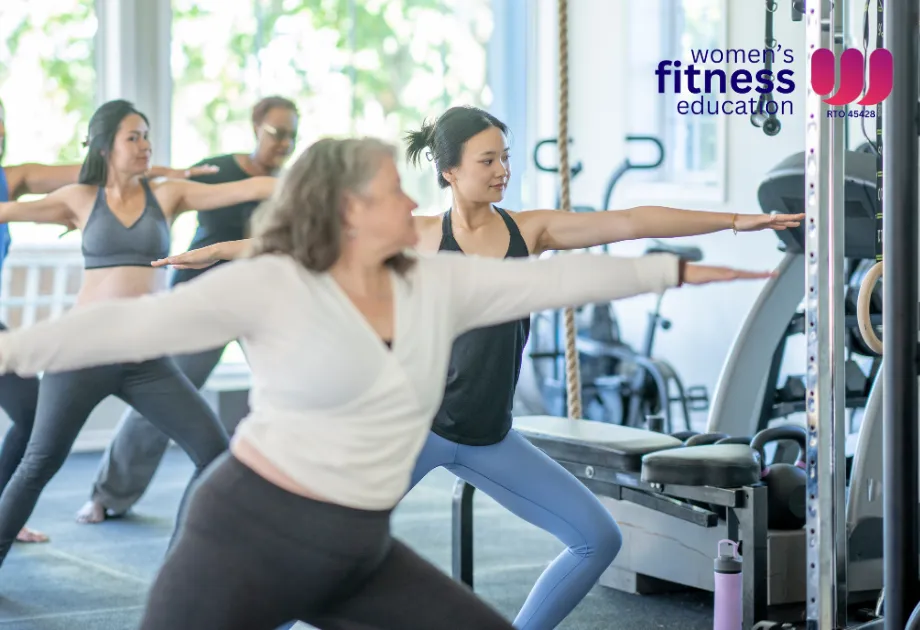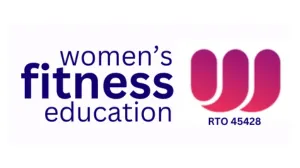Women's Fitness Blog

What Can You Specialise In as a Women's Personal Trainer?
Becoming a women's personal trainer is more than just mastering general fitness routines; it’s about understanding and addressing the unique needs of female clients. Women often face different health and fitness challenges across various life stages, from pregnancy to menopause. Specialising in these areas allows you to provide tailored support and help clients achieve their wellness goals. Let's dive into what it means to specialise in women’s fitness and explore the different areas where you can concentrate your efforts.
1. What Is a Women's Personal Trainer?
A women's personal trainer is a fitness professional who specialises in addressing the unique health and fitness needs of female clients. Unlike general personal trainers, women's personal trainers focus on the specific physical, hormonal, and emotional factors that influence women's health. These trainers design personalised programs that cater to various life stages and conditions, ensuring safe and effective workouts.
Women's personal trainers often deal with issues such as pregnancy, menopause, hormonal imbalances, and bone health. They provide expert guidance and support, helping women navigate these changes and maintain their fitness. By understanding the specific needs of female clients, these trainers can create customised plans that promote overall well-being.
The role of a women's personal trainer goes beyond exercise routines. They educate clients on nutrition, lifestyle changes, and stress management, contributing to a holistic approach to health. This comprehensive support system helps women achieve their fitness goals and improve their quality of life.
2. Areas to Specialise in as a Women's Personal Trainer
Pre and Postnatal Fitness
Pre and postnatal fitness involves creating safe and effective workout plans for pregnant women and new mums. This specialisation focuses on exercises that support a healthy pregnancy, ease childbirth, and aid postpartum recovery. Trainers need to understand the physical changes during pregnancy and design programs that prevent common issues like back pain and excessive weight gain.
Training for Menopausal Clients
Menopausal clients face unique challenges such as hormonal fluctuations, weight gain, and decreased bone density. Specialising in menopausal fitness involves creating workout routines that address these issues. This might include weight-bearing exercises to strengthen bones, cardio workouts to manage weight, and flexibility exercises to improve joint health.
Women’s Weight Loss and Nutrition
Specialising in women’s weight loss and nutrition requires a deep understanding of the female body’s metabolism and hormonal influences on weight. Trainers can provide tailored diet plans and fitness routines that promote sustainable weight loss. This specialisation often involves educating clients on healthy eating habits and making lifestyle changes to achieve long-term results.
Strength and Conditioning for Women
Strength and conditioning for women focuses on building muscle and improving overall strength. This specialisation is essential for women looking to enhance their athletic performance or simply improve functional fitness. Programs may include resistance training, plyometrics, and functional movements designed to increase strength and endurance.
Women's Sports Performance
Specialising in women's sports performance involves training female athletes to excel in their respective sports. This niche includes sport-specific drills, strength training, and agility exercises. Understanding the biomechanics of women's bodies helps trainers create effective programs that boost performance while reducing the risk of injuries.
By specialising in these areas, women's personal trainers can provide targeted and effective support, helping their clients achieve specific fitness goals and maintain a healthy lifestyle.

3. Is it Important to Have Female-Specific Certifications?
Having female-specific certifications can significantly enhance your credibility and expertise as a women's personal trainer. These certifications demonstrate that you have received specialised training in areas pertinent to women's fitness and health.
Clients are more likely to trust trainers who have the qualifications to support their unique needs.
Certifications in pre and postnatal fitness, for example, ensure that you understand the physical changes women undergo during and after pregnancy. This knowledge helps you design safe and effective workout plans tailored to each stage of pregnancy and postpartum recovery. Similarly, a certification in menopause fitness equips you with the skills to address hormonal changes and health concerns specific to menopausal women, such as bone density and weight management.
Moreover, female-specific certifications often cover comprehensive aspects of women's health, including nutrition, injury prevention, and stress management. These courses provide a well-rounded education, making you a versatile trainer capable of addressing a wide range of female-specific concerns. By investing in these certifications, you can differentiate yourself from general trainers and establish yourself as an expert in women's fitness.
4. How to Choose Your Specialisation as a Women's Personal Trainer
Choosing your specialisation as a women's personal trainer involves several steps.
Start by considering your interests and passions. Identifying what excites you about women's fitness can help you find a niche that you’re genuinely enthusiastic about. Passion can be a significant motivator and lead to greater job satisfaction.
Next, assess your current skills and areas where you excel. Do you have a background in nutrition, or are you particularly skilled at strength training? Leveraging your strengths allows you to offer high-quality services and build a strong reputation in your chosen specialisation.
Research market demand in your area. Some niches may be more in demand than others based on your location. For example, there may be a high demand for prenatal fitness trainers in communities with many young families or for menopausal fitness specialists in areas with an older population. Understanding what clients in your area need can guide you to a profitable and impactful specialisation.
Additionally, pursue relevant certifications and education. Female-specific courses provide you with the expertise required to address the unique needs of your clients. Continuous learning and professional development are essential to stay current in the ever-evolving field of women’s fitness.

Conclusion
Specialising as a women's personal trainer can lead to a rewarding and successful career. By focusing on specific areas such as pre and postnatal fitness, menopausal training, or women's sports performance, you can provide tailored support that meets the unique needs of female clients. Whether it’s through specialised certifications or continuous professional development, enhancing your skills in these niches can set you apart from general fitness trainers.
At Women's Fitness Education, we understand the importance of specialised training in women's fitness. Our online personal trainer courses are designed to equip you with the necessary skills and knowledge to excel in your chosen specialisation. Join us today to start your journey toward becoming an expert in women's fitness and make a meaningful impact on your clients' lives.
